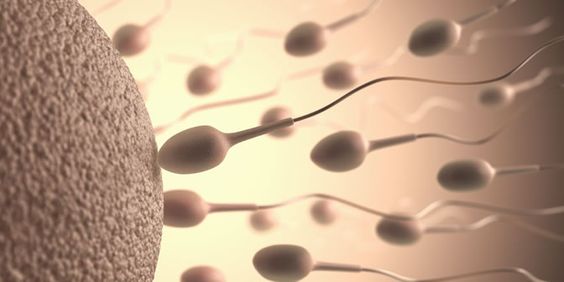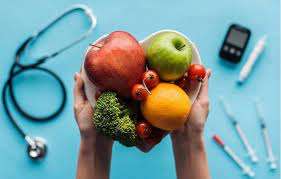Foods To Increase Fertility.
When it comes to starting a family, some couples may find that getting pregnant isn’t as easy as they hoped. While there are various factors that can influence fertility, diet plays a crucial role in promoting reproductive health. In this article, we will explore a range of foods that have been shown to increase fertility naturally, offering hopeful couples a delicious and nutritious path towards conceiving their bundle of joy.
1. The Importance of a Fertility-Friendly Diet
Before delving into specific foods, it’s essential to understand the impact of diet on fertility. A fertility-friendly diet focuses on providing essential nutrients that support reproductive health, hormone balance, and overall well-being.
1.1. Maintaining a Healthy Weight
Excess body weight can disrupt hormonal balance and interfere with ovulation in women, while in men, it can affect sperm quality and quantity. On the other hand, being underweight may lead to irregular menstrual cycles in women. A balanced diet helps maintain a healthy weight, boosting fertility prospects.
1.2. Balancing Hormones
Hormonal imbalances can pose significant obstacles to conception. Nutrient-rich foods can help regulate hormones, supporting the reproductive system’s function and increasing the chances of successful fertilization.
2. Superfoods for Fertility
2.1. Avocado
Rich in monounsaturated fats, avocados promote healthy ovulation in women and support sperm health in men. They also provide essential vitamins and minerals like vitamin E, vitamin C, and folate.
2.2. Spinach
Packed with iron and folate, spinach aids in preventing birth defects and supports overall fertility. It also contains antioxidants that help reduce inflammation in the body, promoting a healthy reproductive system.
2.3. Walnuts
These omega-3 fatty acid powerhouses are excellent for enhancing fertility in both men and women. Omega-3s improve sperm quality, regulate hormones, and boost blood flow to the reproductive organs.
3. The Role of Antioxidants
Antioxidants play a vital role in safeguarding reproductive cells from oxidative stress, which can damage both sperm and eggs. Including antioxidant-rich foods in your diet can protect reproductive health.
3.1. Berries
Blueberries, strawberries, and raspberries are bursting with antioxidants that combat free radicals, supporting fertility. They also offer natural sweetness without spiking blood sugar levels.
3.2. Dark Chocolate
Yes, you read that right! Dark chocolate contains antioxidants that can improve sperm quality and motility. However, moderation is key as excessive sugar and fat intake should be avoided.
4. Plant-Based Proteins
Plant-based proteins are an excellent alternative to animal-based proteins, especially for individuals following a vegetarian or vegan lifestyle. These proteins are often lower in saturated fats and cholesterol, promoting better reproductive health.
4.1. Lentils
Lentils are a great source of protein, iron, and folate. They are easy to incorporate into meals and help support hormone balance and regular ovulation.
4.2. Quinoa
Rich in amino acids and iron, quinoa aids in promoting healthy eggs and regular ovulation. It’s also gluten-free and versatile in cooking.
5. The Importance of Hydration
Staying hydrated is essential for overall health, including reproductive health. Water helps transport essential nutrients throughout the body and supports the cervical mucus, aiding sperm in reaching the egg.
Conclusion
In conclusion, adopting a fertility-friendly diet can significantly enhance the chances of conceiving naturally. Including nutrient-dense foods, such as avocados, spinach, walnuts, berries, and lentils, can promote reproductive health and hormone balance. Additionally, dark chocolate can be a surprising yet enjoyable addition to a fertility-boosting diet. Remember to stay hydrated and maintain a healthy weight to optimize your chances of starting a family.
Do follow us https://uniqverses.com/
FAQs
1. Are there specific foods to avoid when trying to increase fertility?
While focusing on fertility-boosting foods is crucial, it’s also essential to avoid excessive caffeine, alcohol, and processed foods. These can negatively impact fertility and should be consumed in moderation.
2. Can supplements help improve fertility?
In some cases, supplements like folic acid, zinc, and coenzyme Q10 may support fertility. However, it’s essential to consult a healthcare professional before starting any supplement regimen.
3. How long should we try before seeking medical assistance for infertility?
Couples under 35 are generally advised to try for a year before seeking medical help if they haven’t conceived. For couples over 35, this timeframe is reduced to six months.
4. Does stress affect fertility?
Yes, chronic stress can disrupt hormonal balance and affect fertility. Engaging in relaxation techniques and stress-reducing activities can be beneficial.
5. Can exercise impact fertility?
Moderate exercise is generally beneficial for fertility, but excessive intense workouts may have a negative impact. Finding a balance and avoiding extreme exercise routines is advisable.









